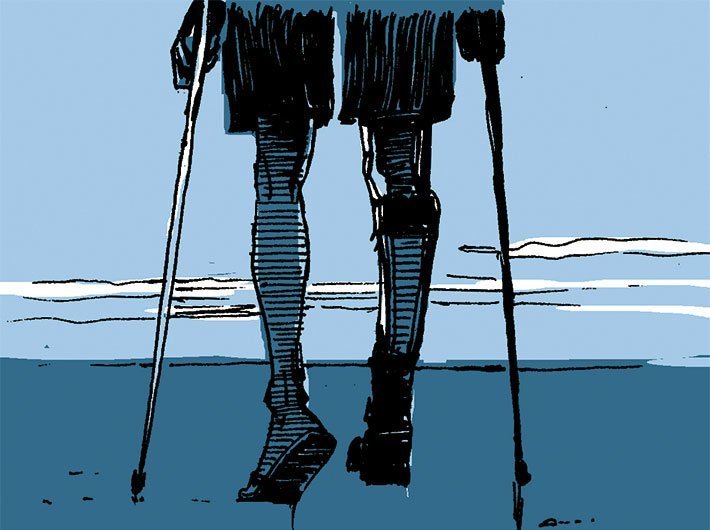Population disability data is essential for monitoring the quality and outcomes of policies for persons with disabilities
As per census 2011, in India, out of the 121 crore population, about 2.68 crore persons are ‘disabled’ which is 2.21 percent of the total population. In an era where ‘inclusive development’ is being emphasised as the right path towards sustainable development, focussed initiatives for the welfare of disabled persons are essential, said a report of the ministry of statistics and programme implementation.
The report said that there are ample reasons for developing a sound national disability statistics. Information on their socio - demographic profile is essential for welfare of disabled persons. Information about their functional status is important to identify needs since two individuals with the same impairment may face different types of difficulties in undertaking certain activities, and so have different needs that require different kinds of interventions.
Read: Poor utilisation of funds meant for disabled by states: Expert
Functional status data is essential for determining the broader social needs of persons with disabilities, such as provision of assistive technology for use in employment or education or broader policy and laws. Population disability data is essential for monitoring the quality and outcomes of policies for persons with disabilities. In particular, these data help to identify policy outcomes that maximize the participation of persons with disabilities in all areas of social life from transportation and communication, to participation in community life, it added.
Finally, with complete and reliable disability statistics, state agencies will have the tools for assessing the cost-effectiveness of policies for persons with disabilities, which in turn can provide the evidence to persuade governments of their ultimate benefit for all citizens.
Read: Who’s disabled?
The National Policy for Persons with Disabilities (2006) recognizes that Persons with Disabilities are valuable human resource for the country and seeks to create an environment that provides equal opportunities, protection of their rights and full People with disabilities are vulnerable because of the many barriers we face: attitudinal, physical, and financial. Addressing these barriers is within our reach and we have a moral duty to do so...... But most important, addressing these barriers will unlock the potential of so many people with so much to contribute to the world.
Read: How a partially blind IAS officer helped the deaf to listen and the disabled to move
A number of International commitments and guidelines came into effect in the recent past targeting the welfare of the disabled persons. India is a signatory to the ‘Declaration on the Full Participation and Equality of People with Disabilities in the Asia Pacific Region’ (2000). India has ratified the ‘UN Convention on the rights of Persons with Disabilities’ (2008). India is also a signatory to the ‘Biwako Millennium Framework ‘(2002) for action towards an inclusive, barrier free and rights based society. The ‘Biwako Plus Five (2007): further efforts towards an inclusive, barrier-free and rights-based society for persons with disabilities in Asia and the Pacific’ added the emphasis.
The Incheon Strategy to “Make the Right Real” for Persons with Disabilities in Asia and the Pacific (2012) provides the Asian and Pacific region and the world with the first set of regionally agreed disability inclusive development Goals. The Incheon strategy will enable to track progress towards improving the quality of life, and the fulfilment of the rights, of the region’s persons with disability.
Read: Report on disabled persons in India
